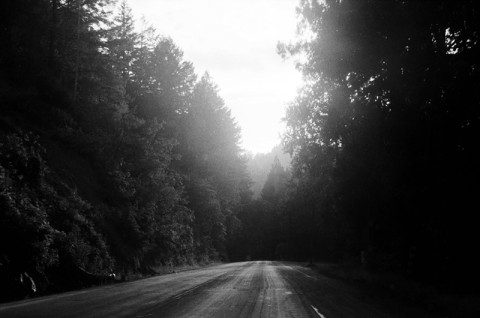There were very few in the family who could now remember the legendary Belkin boys, but Ida Belkin Franklin was one who could. At eighty-nine she’d forgotten plenty, but the ghostly and half-remembered antics of the Belkin boys figured often in her midnight reveries. The boys hadn’t really been boys—they’d been Ida’s great-uncles, men in their fifties when she was a child, famous for gambling and whoring and moonshining, reputed to carry diseases, known to carry concealed weapons, taken at intervals into custody for their busy criminalities. They were large, dark men, handsome when clean.
Billy Belkin, the youngest, was the first to go. Fate, as capricious as the boys, decided to bowl the brothers in reverse order. At a roadhouse one early evening a stranger bet Billy he couldn’t beat the old Southern from Atlanta when it crossed the county road at midnight. “Across and back,” the stranger had said. Drunk, Billy made it across, but not back. Ida, five years old, wondered how you lost a bet like that: a man could step across the rails and back a thousand times between dinner and midnight and never know danger. Billy once gave Ida a fresh tangerine, back when citrus from Florida didn’t often make it to Tennessee. She treasured it so long it spoiled and she didn’t actually taste a tangerine until she was thirty-two. Ida supposed that Billy would not have allowed himself the patience of watching a tangerine spoil.
Jimbo Belkin, who made the best moonshine, died the next year. A man of some means, but too prone to sample his own business assets, Jimbo crashed almost a dozen cars, including several Ford Model Ts, a big Hupmobile, as well as a sleek Packard that he bragged about long after it was gone and did not recollect convolving with a tree. The powers that be took away his license. At last he traded twenty jugs of his finest for a tractor named Alamedie, which he modified by adding a cabin made of two-by-fours and some oilcloth in case of bad weather. He seemed to fall in love with Alamedie. On Ida’s sixth birthday Jimbo took her out for a drive along the county roadways, letting her hold Alamedie’s wheel on the straights while he puffed on cigars and waved at women on their porches. By her seventh birthday Jimbo had drowned, locked in an embrace with Alamedie who overturned on him in a drainage ditch during a storm. It took three men and a mule to pull the tractor off him, and Jimbo’s funeral was well attended, particularly by unaccompanied women who did not seem to grieve much.
Right after that Pappy and Pinkus Belkin died in a strange sort of tandem. Pappy smothered under the butt of a monkey he won in a card game—passed out one night and the creature sat on his face, perhaps misunderstanding how to ask for food. Within a month Pinkus, who lived in Pappy’s basement, vowed to renovate the house in honor of his brother, although this was against the wishes of Pappy’s wife. He climbed the ridgepole of the roof, stood to adjust his trousers, and then pitched over the side of the house before, according to Pappy’s wife, you could say “Boo.” Neither man had ever had much to say to Ida in particular, or children in general, or in truth anyone anywhere except each other. It was felt that since one had died, it was honorable of fate to grab the other one, too, for eternity could last a long time without conversation.
The last of the brothers was the oldest, Howt Belkin. Howt was unremarkable, a kind and dreamy man whom no one missed if he wasn’t there and no one noticed if he was. He lived to be a very old man and died peacefully in bed, reading a book.
Once, when she was five, Ida had strolled out onto Pappy’s porch after a big family dinner and found Howt nodding on the swing there. She tucked herself up beside him, he put an arm around her, and the two fell asleep like that. It was summer and time that afternoon elongated somehow, like taffy being pulled.
Eighty-four years later Howt was the only legendary Belkin boy Ida remembered with absolute clarity. Not the loud and storied brothers. Just Howt. Dreamy Howt. The way his heart had beaten. The swing moving in a graceful adagio. The shush of insects. The little yelps from dogs dreaming in the dirt. The smell of sweet honeysuckle. The way her Uncle Howt had been able to keep so still.



 The SmokeLong Grand Micro Contest (The Mikey) is now an annual competition celebrating and compensating the best micro fiction and nonfiction online.
The SmokeLong Grand Micro Contest (The Mikey) is now an annual competition celebrating and compensating the best micro fiction and nonfiction online.